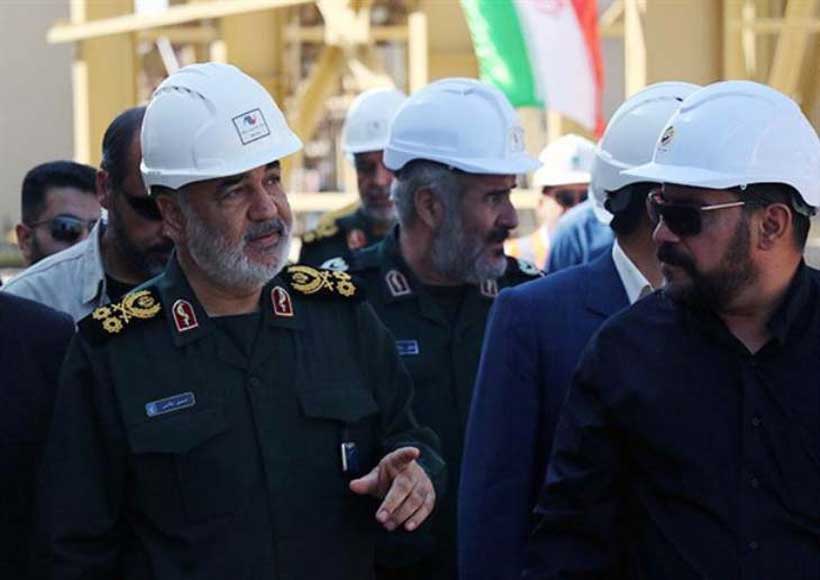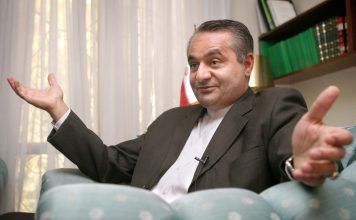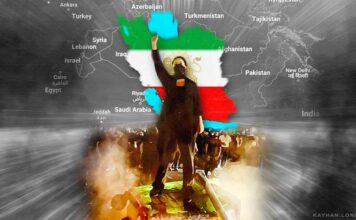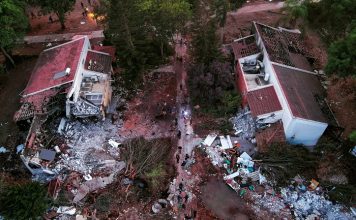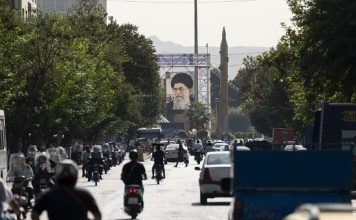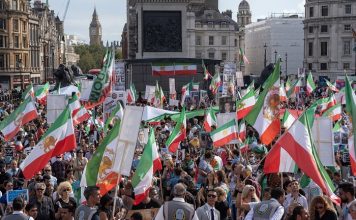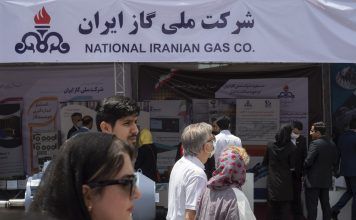By Majid Mohammadi
If the Islamic Republic’s domestic and foreign policies remain unchanged, we will witness three developments in Iran in the coming year:
- The Majlis (Iranian Parliament), which is now controlled by Islamist hardliners, will lend its unequivocal support to the military. It will be an ineffective institution if it does not align its efforts with the vision of Iran’s Supreme Leader Ayatollah Ali Khamenei. So, it is more likely that the Majlis will expedite the leader’s plans.
- President Hassan Rouhani’s government will probably be replaced in 2022 with hardliners from the military and their supporters (young and devout people as the leader has described them).
- The economic crisis will worsen in the country as the regime loses its financial power.
According to a report by the Majlis’s Research Center, up to six million people will lose their jobs in the country because of the coronavirus pandemic. Meanwhile, the vast majority of Iranians believe that many government officials are incompetent and corrupt. Both political factions and even the leader agree with the public. Mr. Khamenei has repeatedly complained about the regime’s failure to fight corruption and achieve its goals.
[aesop_image img=”https://kayhanlife.com/wp-content/uploads/2020/06/2020-05-27T105355Z_841268146_RC2YWG9EFN71_RTRMADP_3_HEALTH-CORONAVIRUS-IRAN-PARLIAMENT-scaled.jpg” panorama=”off” credit=”REUTERS./” alt=”An Iranian lawmaker wears a protective face mask, as he attends the opening ceremony of Iran’s 11th parliament, as the spread of the coronavirus disease (COVID-19) continues, in Tehran, Iran, May 27, 2020. ” align=”center” lightbox=”off” captionsrc=”custom” caption=”An Iranian lawmaker wears a protective face mask, as he attends the opening ceremony of Iran’s 11th parliament, as the spread of the coronavirus disease (COVID-19) continues, in Tehran, Iran, May 27, 2020. ” captionposition=”left” revealfx=”off” overlay_revealfx=”off”]
These three points show that the military has the power and the means to crush any unrest when the time comes. However, those in power may face challenging economic situations. What would they do under such conditions? What is the Islamic Revolutionary Guards Corps (IRGC) plan for Iran?
It is inconceivable to think that the IRGC does not have a plan for Iran’s future, given that it controls the country’s political propaganda machine, the Judiciary, the ballistic missile program, the security, and the intelligence agencies, and is also arguably the most oppressive organization in the entire Middle East. If cornered, the IRGC may reveal its violent nature fully.
We can expect the IRGC to act in four distinct ways as it becomes intrinsically fused with the state:
- The IRGC’s primary goal is to drive U.S. forces out of the region and strengthen the Islamic Republic’s influence in the Red Sea and the Persian Gulf (including Yemen, Iraq, Kuwait, Saudi Arabia, Bahrain, Qatar, and the United Arab Emirates) and the Gulf of Oman and the Mediterranean Sea (Oman, Jordan, Syria, and Lebanon). The regime has developed ideological centers, religious schools, and terrorist cells in these countries in the past four decades.
The Islamic Republic does not plan to invade and occupy Riyadh, Dubai, Oman, Kuwait City, Muscat, Doha, and Amman, but rather to strengthen the militias under its control in those cities and ensure the governments in those capitals do not come to power without Tehran’s approval. Militia members have been studying at seminaries in Qom and the IRGC’s training camps for the past 40 years.
Even if the Islamic Republic is forced to sell its entire natural resources and gold reserves and get hit by the exchange rate of 300,000 rials to a dollar, it will not stop supporting the militias under its control in Iraq, Syria, Lebanon, and Yemen. The regime would not abandon its plans even under the most challenging economic situations. Countries with large armies such as Russia, Turkey, and Israel can create problems for Iran.
- The Islamic Republic believes that without nuclear weapons, it would be in the same predicament as Iraq was under the late President Saddam Hussain, but having nuclear bombs would put it in a similar position to North Korea. The IRGC is convinced that not having nuclear weapons will embolden foreign powers to plot the regime’s overthrow through military actions. As a result, Iran’s nuclear program has always included a military component.
The regime has always tried to buy components for its nuclear weapons program through various illegal channels. The harder the circumstances, the more eager the IRGC would be to test nuclear weapons. The regime’s entire missile and satellite programs reportedly are aimed at making a nuclear bomb. Russia, North Korea, and Pakistan are happy that Iran’s nuclear program has been a source of concern for the U.S. They could probably help Iran achieve its goals.
- The IRGC is allegedly involved in the international drug trade and money laundering. Sanctions and international political pressures have reportedly prompted the organization to expand its criminal enterprise. As its power grows inside Iran, the IRGC is extending its alleged criminal activities to the five continents. No one inside Iran can hold the organization accountable for anything.
The IRGC has probably played a role in the anti-Israel protests in Germany and Britain. Shia religious centers, schools, and mosques around the world can supposedly not operate without financial support from the IRGC. However, these bits of help are not free. For instance, why should the IRGC own a $10 million cultural center in Canada? Financial difficulties will not stop the Islamic Republic from supporting these institutions, because their existence is a priority to the regime. Tehran would deprive Iranians of their livelihood to fund these centers.
To meet its financial needs, the IRGC could resort to sea piracy in the Persian Gulf. The organization has supposedly been the primary culprit in the arrest, detention, and imprisonment of dual nationals in Iran as a way of extorting money from their adopted countries. The IRGC relies more on its independent sources of revenue inside and outside Iran than on its share of the government budget. Governments and military and security analysts should not take the Islamic Republic’s official budgetary allocation to the IRGC on face value. The IRGC’s budget is as complicated as the organization itself.
- The IRGC’s alleged terror network would become more active if the regime were to fall apart. The IRGC knows that although the regime’s opposition is not large, it poses a genuine threat to the Islamic Republic, in the same way that a small group of people toppled the Pahlavi dynasty when it was at its weakest. That is why the organization will most likely unleash its terror if it feels threatened.
The IRGC might have access to the methods and means allegedly used by the Russian President Vladimir Putin to silence his opponents. Opposition groups make an easy target for the IRGC if they assume that the organization is weakening, and let their guards down. Iranian Foreign Ministry officials, Shia centers, and supporters of the regime outside Iran could be willingly or unwittingly cooperating with the IRGC in its efforts to target opposition figures.
The current situation in Iran serves the IRGC’s aims. The organization would welcome attacks on Iran’s nuclear facilities by the U.S. and Israel because they escalate tensions. The IRGC knows that it can develop and expand its political and economic powers by promoting conflict. The IRGC has morphed into a dangerous monster with many heads, and those attacked by it will have no choice but to confront it.
This article was translated and adapted from Persian by Fardine Hamidi.

